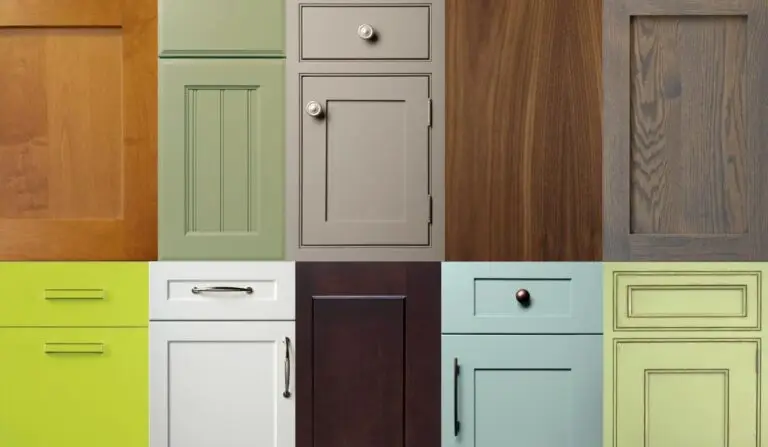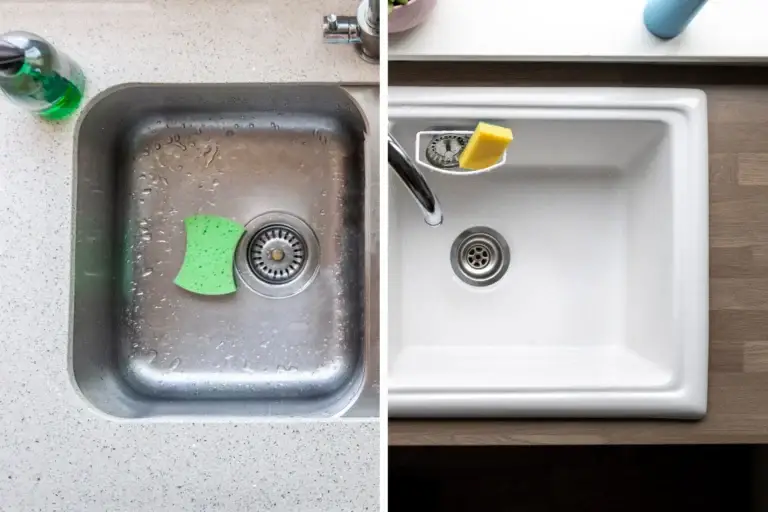How to Maintain and Care for Your Countertops
Countertops are a central part of any kitchen or bathroom, contributing to both functionality and aesthetics. Proper care and maintenance are essential to keeping them in excellent condition for years. Different countertop materials require varying levels of care, and understanding the best practices for each type will help prolong their life, maintain their appearance, and prevent costly repairs. This guide will explore how to maintain and care for common types of countertops, including granite, marble, quartz, laminate, and butcher block.
1. Granite Countertops
Granite is a popular natural stone choice known for its durability and natural beauty. However, to keep your granite countertops looking new, follow these steps:
- Daily Cleaning: Use a pH-neutral cleaner or mild dish soap with water and a soft cloth or sponge. Avoid harsh chemicals that can break down the sealant.
- Sealing: Granite countertops should be resealed every 1-2 years to maintain their stain resistance. Test the sealant by dripping water on the surface. If it absorbs into the stone, it’s time to reseal.
- Avoid Harsh Scrubbing: Never use abrasive scrubbers or harsh cleaners. They can damage the surface and dull the finish.
- Spill Management: Clean up spills immediately, especially acidic substances like wine, vinegar, and citrus juice, which can stain and etch the stone.
2. Marble Countertops
Marble is a softer and more porous stone, which makes it more prone to staining and etching. Proper care is essential to avoid damage.
- Daily Cleaning: Use a soft cloth or sponge with mild soap and water. Never use acidic cleaners such as vinegar, which can etch the surface.
- Sealing: Marble should be sealed regularly, similar to granite, to prevent stains from penetrating the surface.
- Handling Spills: Wipe up spills immediately, particularly acidic substances like lemon juice or tomato sauce, to prevent etching.
- Avoid Heavy Pressure: Be cautious when placing heavy objects on marble, as it can chip or crack more easily than harder stones like granite.
3. Quartz Countertops
Quartz is an engineered stone that’s highly durable and non-porous, making it one of the easiest countertop materials to maintain.
- Daily Cleaning: Clean quartz countertops with warm water and a gentle dish soap or a non-abrasive cleaner. Avoid using bleach or highly acidic products.
- Heat Protection: Although quartz is heat-resistant, it can still be damaged by extreme heat. Use trivets or hot pads for hot pots and pans.
- Avoid Harsh Chemicals: Never use harsh chemicals, such as oven cleaners, bleach, or oil-based soaps, as they can damage the surface over time.
- No Sealing Required: Quartz does not need to be sealed, as its non-porous surface resists staining and bacterial growth naturally.
4. Laminate Countertops
Laminate countertops are an affordable and versatile option, but they are more prone to scratching and heat damage compared to natural stone.
- Daily Cleaning: Use a damp cloth with a mild cleaner or dish soap. Avoid using abrasive scrubbers or harsh cleaners, as they can scratch the surface.
- Stain Removal: For stubborn stains, use a paste made from baking soda and water. Apply it to the stain and gently scrub with a soft sponge.
- Avoid Excessive Heat: Laminate is highly sensitive to heat, so always use trivets or hot pads when placing hot pots or pans on the surface.
- Prevent Moisture Damage: Avoid leaving water puddles on laminate countertops, especially near seams, as water can seep in and cause swelling or warping.
5. Butcher Block Countertops
Butcher block countertops are beautiful and warm but require consistent care to avoid drying out, staining, or harboring bacteria.
- Daily Cleaning: Wipe down butcher block countertops with a damp cloth and mild soap. Ensure the surface dries completely to avoid water absorption.
- Oiling: Regularly apply food-safe mineral oil to keep the wood moisturized and protected. The frequency depends on usage, but typically, butcher block needs to be oiled every 3-6 months.
- Preventing Stains and Burns: Always use cutting boards for chopping and trivets for hot pots and pans. Wood can easily stain, burn, or scratch.
- Sanitization: For a deeper clean, sanitize the surface by wiping it down with a mixture of vinegar and water, or use a small amount of hydrogen peroxide to kill bacteria.
6. Concrete Countertops
Concrete countertops offer a modern and customizable look but can be prone to cracking and staining if not maintained properly.
- Daily Cleaning: Use a pH-neutral cleaner and soft cloth for daily cleaning. Avoid acidic or abrasive cleaners that can erode the sealant.
- Sealing: Concrete is very porous and requires regular sealing to prevent stains and moisture damage. Reseal concrete countertops at least once a year.
- Avoid Heat Exposure: Concrete can crack under extreme heat, so use trivets or heat pads for hot items.
- Crack Management: If cracks do appear, they can be filled with a matching color sealant or repair kit.
7. Soapstone Countertops
Soapstone is a non-porous, natural stone that is highly resistant to staining and heat. However, it is softer than granite or quartz, making it prone to scratches.
- Daily Cleaning: Clean soapstone with a mild dish soap and water. Since it is non-porous, it does not need sealing.
- Scratches: If the surface becomes scratched, light sanding with fine-grit sandpaper can restore the finish, followed by a coat of mineral oil to blend the color.
- Mineral Oil: Applying mineral oil enhances the color of the stone and helps maintain a uniform appearance. Apply oil every few months, depending on the look you desire.
- Heat Resistance: Soapstone is highly heat-resistant, making it ideal for kitchens. You can place hot pots directly on the surface without damage.
8. Stainless Steel Countertops
Stainless steel countertops are popular in commercial kitchens for their durability and resistance to heat and stains. They offer a sleek, modern look but can scratch easily.
- Daily Cleaning: Use a soft cloth with warm water and a mild detergent. For tougher stains, a stainless steel cleaner can help restore shine.
- Avoid Abrasive Cleaners: Stainless steel can scratch easily, so avoid using abrasive pads or cleaners.
- Prevent Water Spots: Wipe down the surface after cleaning to avoid water spots and streaks.
- Scratch Prevention: Use cutting boards to avoid scratching the surface, as stainless steel countertops show scratches more easily than other materials.
9. Glass Countertops
Glass countertops offer a sleek, modern design that is non-porous and resistant to stains. However, they can scratch and crack if not properly maintained.
- Daily Cleaning: Use a glass cleaner or a mixture of water and vinegar for daily cleaning. A microfiber cloth can help prevent streaks.
- Avoid Abrasive Pads: Never use abrasive pads or cleaners on glass, as they will scratch the surface.
- Prevent Cracks: Avoid placing heavy objects on the surface or exposing it to extreme temperature changes, as this can cause cracks or chips.
10. Tile Countertops
Tile countertops are affordable and customizable but require regular maintenance due to the grout lines.
- Daily Cleaning: Clean tiles with a mild detergent and water. A toothbrush can help scrub the grout lines.
- Grout Sealing: Grout lines are prone to staining, so sealing them regularly is essential to keep them looking fresh.
- Cracked Tiles: If a tile cracks, it can usually be replaced individually without needing to replace the entire countertop.
Conclusion
Maintaining and caring for your countertops involves regular cleaning, sealing (where necessary), and taking precautions to avoid stains, scratches, and heat damage. Each countertop material has unique needs, and understanding those requirements is essential for prolonging their life and keeping them looking pristine. By following these maintenance tips, you can ensure that your countertops continue to enhance the beauty and functionality of your space for many years to come.
FAQs:
How often should granite countertops be sealed? Granite countertops should be sealed every 1-2 years, depending on the level of use.
Can I use vinegar to clean my marble countertops? No, vinegar is too acidic and can etch the surface of marble countertops.
Do quartz countertops need to be sealed? No, quartz countertops are non-porous and do not require sealing.
How can I remove scratches from a butcher block countertop? Light sanding and re-oiling can help remove scratches from butcher block countertops.
Is it safe to place hot pots on soapstone countertops? Yes, soapstone is highly heat-resistant, making it safe for hot pots and pans.




